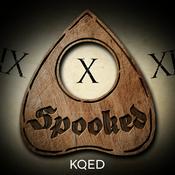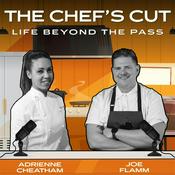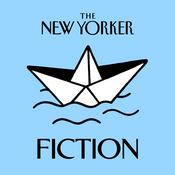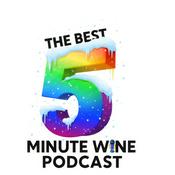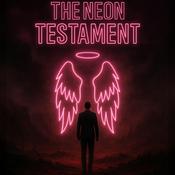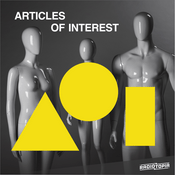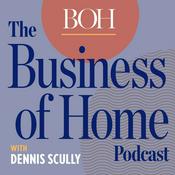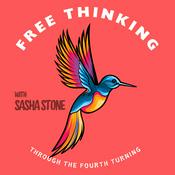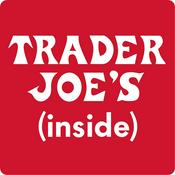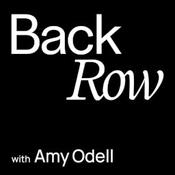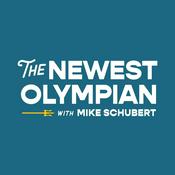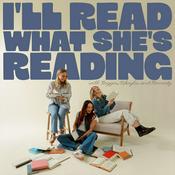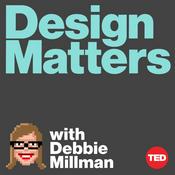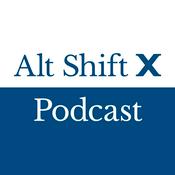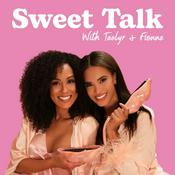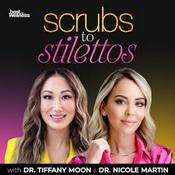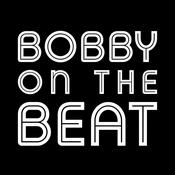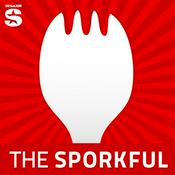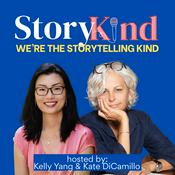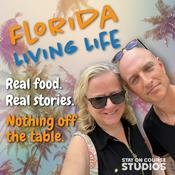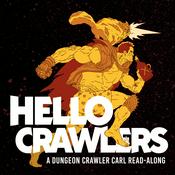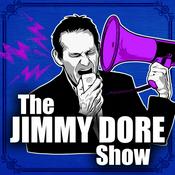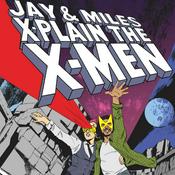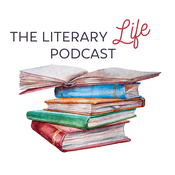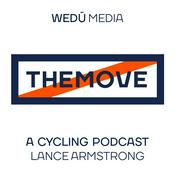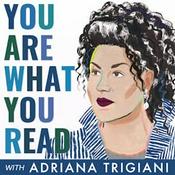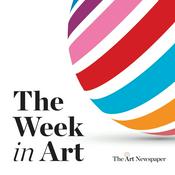27 episodes
- Grab a copy of Husk
Join Nathan's author newsletter
Join Nat's author newsletter
Nathan and Nat dive deep into the intricacies of book cover design and the evolving publishing landscape. They share their personal experiences working with different designers and publishing houses, from DIY approaches to traditional publishing partnerships. Nathan details his current journey working with an art director to create the perfect cover brief, while Nat offers insights from his experiences with both Penguin Random House and independent publishing.
The discussion explores the importance of clear communication with designers, understanding genre expectations, and the surprising realities of how book covers are actually created. They also touch on some fascinating industry challenges, including the complexities of rights management and merchandising in traditional publishing deals.
The conversation wraps up with an interesting tangent into the world of AI and coding, highlighting how technology is rapidly changing both the writing and software development industries.
TIMESTAMPS
[00:04] The cover design process
[02:30] Finding and selecting cover designers
[05:23] Conveying genre through cover design
[07:44] Working with an art director
[10:31] Components of a creative brief
[16:18] Cover design directions
[28:51] Penguin Random House cover process
[33:15] Scribe's cover design process
[36:24] Using stock images in book cover design
[39:52] Cover art licensing and merchandise rights
[42:43] Changes in publishing deals and author revenue streams
[46:17] Updates on our books
[51:16] Wrap-up and next episode preview
Follow us on Twitter twitter.com/between_drafts
Follow us on Instagram instagram.com/betweendraftspod - Grab a copy of Husk
Join Nathan's author newsletter
Join Nat's author newsletter
Nathan shares his experience working with Michael Braff, a seasoned editor known for his work on the Red Rising series. He walks through his methodical approach to finding the right editor, what the actual editing process entails, and the substantial investment of both time and money ($7,000) required for high-quality developmental editing.
The conversation dives deep into the specific feedback received, from enhancing world-building through precise word choice to the importance of "setting the stage" in each scene using dimension, direction, duration, and detail. Nathan and Nat discuss how this professional feedback not only improves the current manuscript but provides valuable insights for future writing projects. The episode also touches on the subsequent steps in the publishing process, including copy editing, proofreading, and interior book design.
Between writing updates, Nat shares some exciting news about recent positive reviews for his book Husk from both BookLife (Publishers Weekly) and Kirkus Reviews, offering a glimpse into the parallel journeys of two writers at different stages of their publishing careers.
TIMESTAMPS
[00:04] Nat announces having a new baby during podcast break
[02:19] Discussion begins about developmental editing process
[03:31] Introduction of editor Michael Braff and Red Rising series
[05:10] Decision process for investing in developmental editing
[07:13] Finding and selecting the right developmental editor
[10:15] Breakdown of developmental editing deliverables and pricing
[13:12] Editor's assessment of story structure and strengths
[16:05] Detailed feedback on word choice and descriptions
[18:35] The four D's of scene setting: dimension, direction, duration, detail
[22:39] Prioritizing editing work and revision strategy
[27:55] Discussion of copy editing and proofreading importance
[30:23] Decision on additional beta readers
[33:28] Book sales updates and marketing discussion
[34:57] Review feedback from BookLife and Publishers Weekly
[37:14] Timeline update for upcoming book releases
Follow us on Twitter twitter.com/between_drafts
Follow us on Instagram instagram.com/betweendraftspod - Grab a copy of Husk
Join Nathan's author newsletter
Join Nat's author newsletter
Nathan and Nat tackle one of the biggest challenges facing aspiring authors: how to financially sustain yourself while pursuing a writing career. They explore various strategies writers use to make ends meet before their books become profitable, drawing from their own experiences and those of successful authors.
They discuss the realities of the publishing industry, including the daunting statistics about author earnings and the fierce competition in the market. They share practical approaches like maintaining a day job while writing nights and weekends, building multiple revenue streams through consulting and newsletters, and strategically saving money to take time off for writing. The conversation also delves into the differences between fiction and nonfiction publishing, including their distinct paths to profitability and marketing strategies.
TIMESTAMPS
[00:00] Affording a writing career
[01:28] Publishing contracts and financial realities of writing
[02:43] Writing while working a full-time job
[05:44] Managing multiple revenue streams as a writer
[07:23] Client work and consulting
[11:02] Writing as a parent
[15:19] Saving money first to focus on writing full-time
[22:04] Balancing writing for work vs creative writing
[29:20] Fiction vs nonfiction writing income potential
[31:28] Sales conversion differences between fiction and nonfiction
[33:14] Book marketing and bulk purchase strategies
[37:05] Getting stuck on your first book
[39:33] Writing multiple books before success
[42:41] Updates on current writing projects
Follow us on Twitter twitter.com/between_drafts
Follow us on Instagram instagram.com/betweendraftspod - Grab a copy of Husk
Join Nathan's author newsletter
Join Nat's author newsletter
Dive into a mind-bending exploration of memory, time, and identity with Blake Crouch's "Recursion." Nat and Nathan dissect this thrilling sci-fi novel that pushes the boundaries of what's possible when memories become more than just recollections. They examine how Crouch masterfully expands the scope of his story from an intimate character study into a global crisis, while maintaining the emotional core that keeps readers invested.
The hosts compare "Recursion" to Crouch's previous work "Dark Matter," discussing how this new novel showcases his evolution as a writer and his ability to handle complex scientific concepts without losing the human element. They explore the book's unique take on time travel, its handling of consequences and causality, and how it differs from typical entries in the genre. Whether you're a fan of sci-fi thrillers or simply enjoy well-crafted narratives that make you think, this spoiler-free discussion (with a clearly marked spoiler section) will help you decide if "Recursion" should be your next read.
TIMESTAMPS
[00:00] Recursion by Blake Crouch
[01:53] Time travel stories
[03:31] Improvements from Dark Matter to Recursion
[04:23] Analysis of antagonists
[04:57] Character development and emotional core
[06:03] Philosophical elements in time travel plot
[07:08] Critique of scientific resolution and story ending
[08:41] Analysis of opening hook and False Memory Syndrome setup
[09:54] How time travel mechanics are introduced
[11:38] How the story grows
[15:04] Examining Slade's motivations and character inconsistencies
[22:28] Critique of romance subplot development
[25:39] Impact of Barry's death on narrative structure
[28:03] Final recommendations and comparison to Dark Matter
[30:03] Updates on our writing projects
Follow us on Twitter twitter.com/between_drafts
Follow us on Instagram instagram.com/betweendraftspod - Grab a copy of Husk
Join Nathan's author newsletter
Join Nat's author newsletter
Nat takes us behind the scenes of launching his new novel "Husk," sharing detailed insights about the realities of self-publishing. From navigating Amazon's complex ranking system to experimenting with different sales channels, Nat breaks down the numbers and strategies that went into his launch week, which saw over 500 copies sold across multiple formats.
The conversation explores the intricate balance between direct sales and Amazon distribution, the impact of pre-orders, and the vital role of early reader reviews. Nat and Nathan dive deep into the various marketing approaches available to indie authors, from professional review services to social media advertising, while discussing the challenges of building long-term momentum beyond the initial launch spike.
TIMESTAMPS
[00:00] Intro
[00:25] Launch sales numbers
[01:37] Kindle vs physical book sales ratio
[02:56] Kindle Unlimited pages read and royalties
[05:08] Breakdown of profits
[06:14] Hardback bundle pre-orders and early reviews
[07:29] Amazon category rankings and launch challenges
[11:18] Goodreads 100-book giveaway campaign
[13:25] Professional review services
[15:14] Getting reviews post-publication
[18:59] Amazon and social media advertising
[23:20] TikTok account hack and social media challenges
[27:36] Pre-order strategy effectiveness
[29:02] Key lessons learned about book marketing
[32:05] Fiction vs nonfiction launch experiences
[34:53] Balancing writing and marketing
Follow us on Twitter twitter.com/between_drafts
Follow us on Instagram instagram.com/betweendraftspod
More Arts podcasts
Trending Arts podcasts
About Between Drafts
Are you an aspiring author dreaming of writing full-time? Join Nathan and Nat, two online writers navigating the murky waters of the publishing world, as they pull back the curtain on their journeys to becoming professional authors. With refreshing honesty and hard-won insights, they'll share the ups and downs, rejections and victories, and get real about their numbers, pitches, and publishing experiences.
Whether you're hoping to publish fiction or nonfiction, traditionally or independently, this is a candid, unfiltered look at what it really takes.
Podcast websiteListen to Between Drafts, Walk-In Talk Podcast and many other podcasts from around the world with the radio.net app
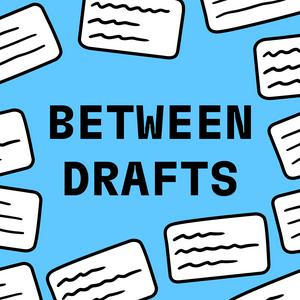
Get the free radio.net app
- Stations and podcasts to bookmark
- Stream via Wi-Fi or Bluetooth
- Supports Carplay & Android Auto
- Many other app features
Get the free radio.net app
- Stations and podcasts to bookmark
- Stream via Wi-Fi or Bluetooth
- Supports Carplay & Android Auto
- Many other app features


Between Drafts
Scan code,
download the app,
start listening.
download the app,
start listening.



